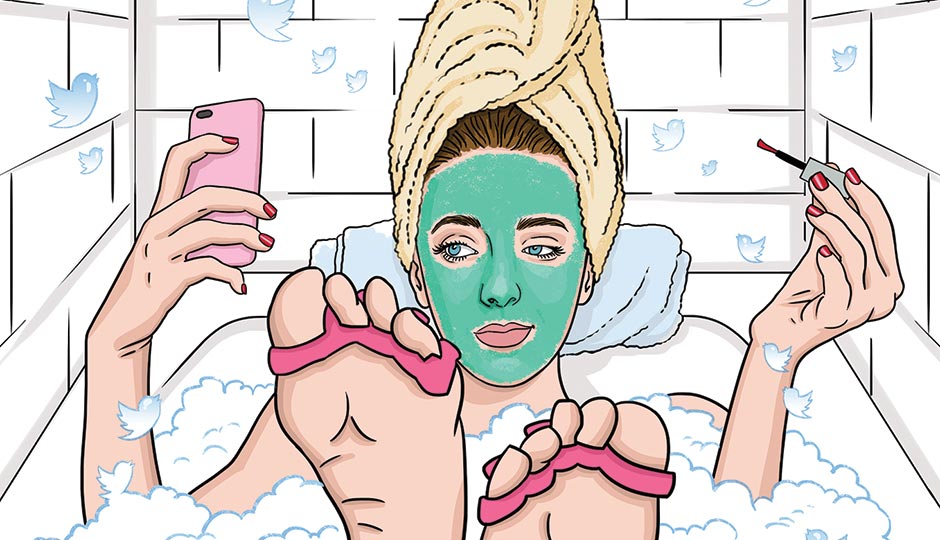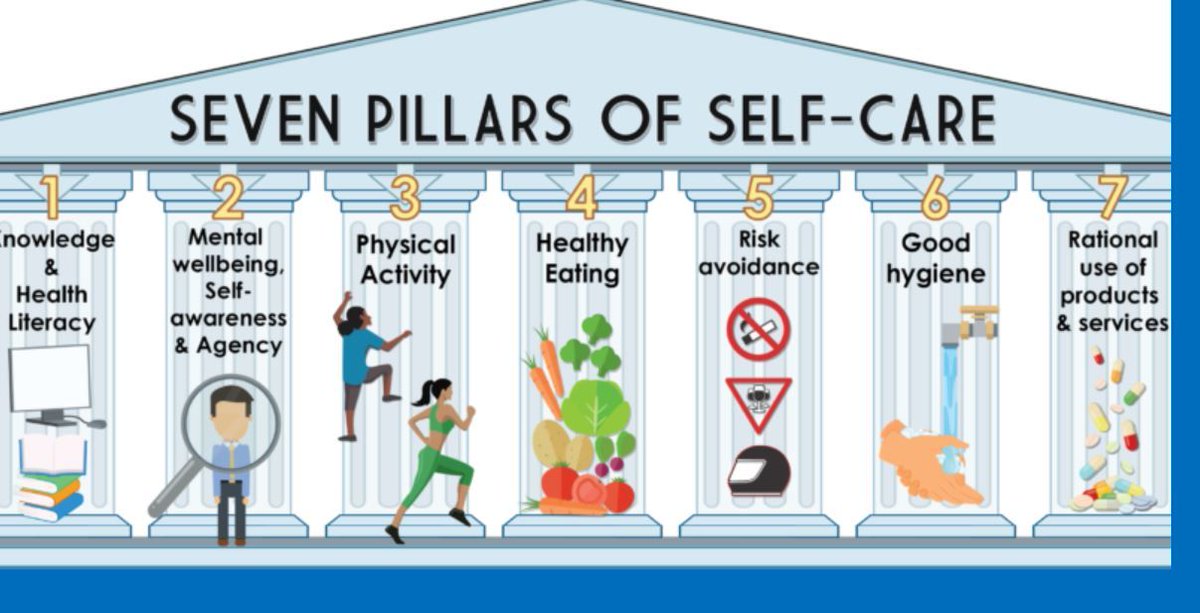|
Am I going crazy or did the world forget about Movember? The month dedicated to Men’s Health awareness seems to be losing traction year after year, which is truly disappointing because Men’s Health is EXTREMELY important! As a Man, this trend worries me so I had to question it. Is it that Men’s health isn’t the most important thing during a pandemic? Is this because of toxic masculinity? Or is this because the popular concept of Self-Care is one that not a lot of men can identify with? I will tell you that as a Male Racialized Dietitian, I am a Unicorn. Luckily, people notice Unicorns and, in my situation, Men have taken notice. The amount of Men that contact me simply because they feel safer being vulnerable and open to another Man is something I never thought of, but it’s definitely a thing. Men care about their health, but I can tell you that Men have difficulties talking about health. From what they tell me, it’s because they can’t connect with the majority of health posts that exist online and especially in social media. I mean, look at the image below, the truth is the majority of self-care articles or posts look like this, so I can definitely understand why it might be excluding people from that concept. It’s time this changed, because HEALTH IS FOR ALL! This below picture is much more appropriate, too bad it isn’t what’s trending. First of all, what is Self-Care? Self-care is any activity that is done with the intent to take care of our mental, emotional and physical health. It’s a concept that seems simple, but is often overly complicated or some element of consumerism is put in. Self-care is essential to improved mood, reduced anxiety, better mental, emotional and physical health (Which is all extremely important during the COVID pandemic – as I write on the first day of a 28-day Lock-down for Toronto and Peel Region, where I live). Most importantly it’s essential to having good relationships with yourself and others. OK, I get it. The above description of Self-Care is really vague and arguably too inclusive for someone to be able to grasp the concept and confidently start establishing a self-care routine. So, let’s talk about what self-care ISN’T! One of the most important things to note is that Self-Care is not forcing yourself to do something that you don’t want to do, despite how much someone else is raving about the benefits of the new “X” trend. Self-care also isn’t selfish. This is especially important for Men to know, so I’ll say it again. SELF-CARE ISN’T SELFISH! Self-care allows you to take care of yourself so you can be the best version of yourself for your own health but also for your loved ones around you! In my experience I have found this to be extremely difficult for Men to understand, so I use an Airplane analogy – You put on your own oxygen mask before you can help others – Meaning, you can only take care of other people once you’ve taken care of yourself. Essentially, Self-care is the key to living a balanced life. It means that you’re able to take care of yourself and your own needs to effectively. So where do we start? Well there are three Basic rules or guidelines to creating a self-care routine;
It’s also important to note that Men often get criticized for doing things for self-care and its bullshit. One important aspect of my own self-care is Video Games. I love them and fun fact: The average age of a video gamer is 34 years old – that’s exactly how old I am. I resent the idea that Men are immature because they like doing things that they did when they were kids too. Video Games - like books, movies and media in general – is escapism but video games have become so much more. You actively problem solve, are immersed in a world of creativity where you’re not limited by physics or your own body’s limitations, you get rich story telling and most importantly there’s SO MUCH SOCIAL SUPPORT IN VIDEO GAMES! (Once you weed out the Toxic Gamer communities that is) I have made the BEST friends while online gaming. There are people from all over the world that I’ve met with rich relationships that offer real social support. I remember a few years ago, a bunch of our friends logged on just to chat and offer social support to a guy in Norway because he just lost his father and is now living alone in a small village! We didn’t even play! We just talked! I remember how all these gamers rallied together during the COVID lockdowns to help me while I was sick in bed with COVID, barely able to breathe. We’re not just gaming, we’re spending time with our friends! Now with that being said. I want the men that are reading this post to really think about self-care in a different way. Self-care isn’t just the Instagram posts filled with bubble baths and wine – if that is what you genuinely love and that would recharge your batteries then you do you! I’m just speaking to the millions of stereotypical social media posts that many people in general do not identify with because the predominant view of self-care is an entitled and privileged act – when in fact, it is securing your own oxygen mask before helping anymore else out. So, before Movember is over, I beg everyone consider the importance of Men’s health again, especially during the pandemic. I CHALLENGE you to pause, reflect and think about the things in your life that you need to recharge your batteries and to do it for 2 weeks straight. Then I challenge you to compare yourself, your thoughts, your behaviours and your energy from before and after the 2 weeks are done. And then I want you to meet a better you. And if you’re struggling with this, contact us. We will gladly help!  Ben Sit, RD, Sports Dietitian President of Evolved Sport and Nutrition Complete Lifestyle Management Just for some inspiration to everyone out there, this is the self-care routine I redid after I recovered from COVID
13 Comments
9/4/2021 06:21:55 am
Overthinking could be damaging to wellbeing and it is so difficult to get freed from it yet the best way to quit overthinking is to listen most loved music. At the point when you play tunes then your center is just to listen the verses with the author has composed.
Reply
16/5/2022 11:26:40 pm
I very much appreciate it. Thank you for this excellent article. Keep posting!
Reply
18/7/2022 04:57:24 pm
The next option is regular customers passing references to their known ones and have sex in OYO rooms or hotel
Reply
3/8/2022 03:03:45 pm
You have a good point here! I totally agree with what you have said!
Reply
Great post <a target="_blank" href="https://www.babangtoto.com">안전놀이터</a>! I am actually getting <a target="_blank" href="https://www.babangtoto.com">안전공원</a>ready to across this information <a target="_blank" href="https://www.babangtoto.com">검증사이트</a>, is very helpful my friend <a target="_blank" href="https://www.babangtoto.com">온라인슬롯</a>. Also great blog here <a target="_blank" href="https://www.babangtoto.com">온라인카지노</a> with all of the valuable information you have <a target="_blank" href="https://www.babangtoto.com">바카라사이트</a>. Keep up the good work <a target="_blank" href="https://www.babangtoto.com">온라인바카라</a> you are doing here <a target="_blank" href="https://www.babangtoto.com">토토사이트</a>. <a target="_blank" href="https://www.babangtoto.com"></a>
Reply
Great post <a target="_blank" href="https://www.parancasino.com">안전놀이터</a>! I am actually getting <a target="_blank" href="https://www.parancasino.com">안전공원</a>ready to across this information <a target="_blank" href="https://www.온라인바카라.com">검증사이트</a>, is very helpful my friend <a target="_blank" href="https://www.parancasino.com">온라인슬롯</a>. Also great blog here <a target="_blank" href="://www.parancasino.com">온라인카지노</a> with all of the valuable information you have <a target="_blank" href="https://www.parancasino.com">바카라사이트</a>. Keep up the good work <a target="_blank" href="https://www.parancasino.com">온라인바카라</a> you are doing here <a target="_blank" href="https://www.parancasino.com">토토사이트</a>. <a target="_blank" href="https://www.parancasino.com"></a>
Reply
Great post <a target="_blank" href="https://www.ringdingslot.com">안전놀이터</a>! I am actually getting <a target="_blank" href="https://www.ringdingslot.com">안전공원</a>ready to across this information <a target="_blank" href="https://www.ringdingslot.com">검증사이트</a>, is very helpful my friend <a target="_blank" href="https://www.ringdingslot.com">온라인슬롯</a>. Also great blog here <a target="_blank" href="https://www.ringdingslot.com">온라인카지노</a> with all of the valuable information you have <a target="_blank" href="https://www.ringdingslot.com">바카라사이트</a>. Keep up the good work <a target="_blank" hre145f="https://www.ringdingslot.com">온라인바카라</a> you are doing here <a target="_blank" href="https://www.ringdingslot.com">토토사이트</a>. <a target="_blank" href="https://www.ringdingslot.com"></a>
Reply
Great post <a target="_blank" href="https://www.doracasinoslot.com">안전놀이터</a>! I am actually getting <a target="_blank" href="https://www.doracasinoslot.com">안전공원</a>ready to across this information <a target="_blank" href="https://www.doracasinoslot.com">검증사이트</a>, is very helpful my friend <a target="_blank" href="https://www.doracasinoslot.com">온라인슬롯</a>. Also great blog here <a target="_blank" href="https://www.doracasinoslot.com">온라인카지노</a> with all of the valuable information you have <a target="_blank" href="https://www.doracasinoslot.com">바카라사이트</a>. Keep up the good work <a target="_blank" href="https://www.doracasinoslot.com">온라인바카라</a> you are doing here <a target="_blank" href="https://www.doracasinoslot.com">토토사이트</a>. <a target="_blank" href="https://www.doracasinoslot.com"></a>
Reply
Great post <a target="_blank" href="https://www.erzcasino.com">안전놀이터</a>! I am actually getting <a target="_blank" href="https://www.erzcasino.com">안전공원</a>ready to across this information <a target="_blank" href="https://www.erzcasino.com">검증사이트</a>, is very helpful my friend <a 온라인슬롯="_" href="https://www.erzcasino.com">온라인슬롯</a>. Also great blog here <a target="_blank" href="https://www.erzcasino.com">온라인카지노</a> with all of the valuable information you have <a target="_" href="https://www.erzcasino.com">바카라사이트</a>. Keep up the good work <a target="_blank" href="https://www.erzcasino.com">온라인바카라</a> you are doing here <a target="_blank" href="https://www.erzcasino.com">토토사이트</a>. <a target="_blank" href="https://www.erzcasino.com"></a>
Reply
Leave a Reply. |
Categories
All
Archives
November 2021
|
- Home/ News
- About
- Services/ Store
- Media
-
Learning Center
- ESN Athletic and Healthy Lifestyle Learning Center >
-
Professional Learning Center
>
-
The ESN Sports Nutrition Certificate
>
- ESN Learning Center - Sports Nutrition Certificate Level 1 >
- ESN Learning Center Sports Nutrition Certificate Level 2 >
-
ESN Learning Center - Sports Nutrition Certificate Level 3
>
- Module 1 - Periodization for the Athlete
- Module 2 - Nutrition Strategies to Optimize Recovery
- Module 3 - Sports Nutrition for Children and Young Athletes
- Module 4 - Sports Nutrition for the Aging Athlete
- Module 5 - Nutritional Strategies for Injury Prevention and Concussions
- Module 6 - Nutritional Strategies for the Travelling Athlete
- Module 7 - Tournament Nutrition Strategies
-
The ESN Sports Nutrition Certificate
>
- Contact
Proudly powered by Weebly





 RSS Feed
RSS Feed